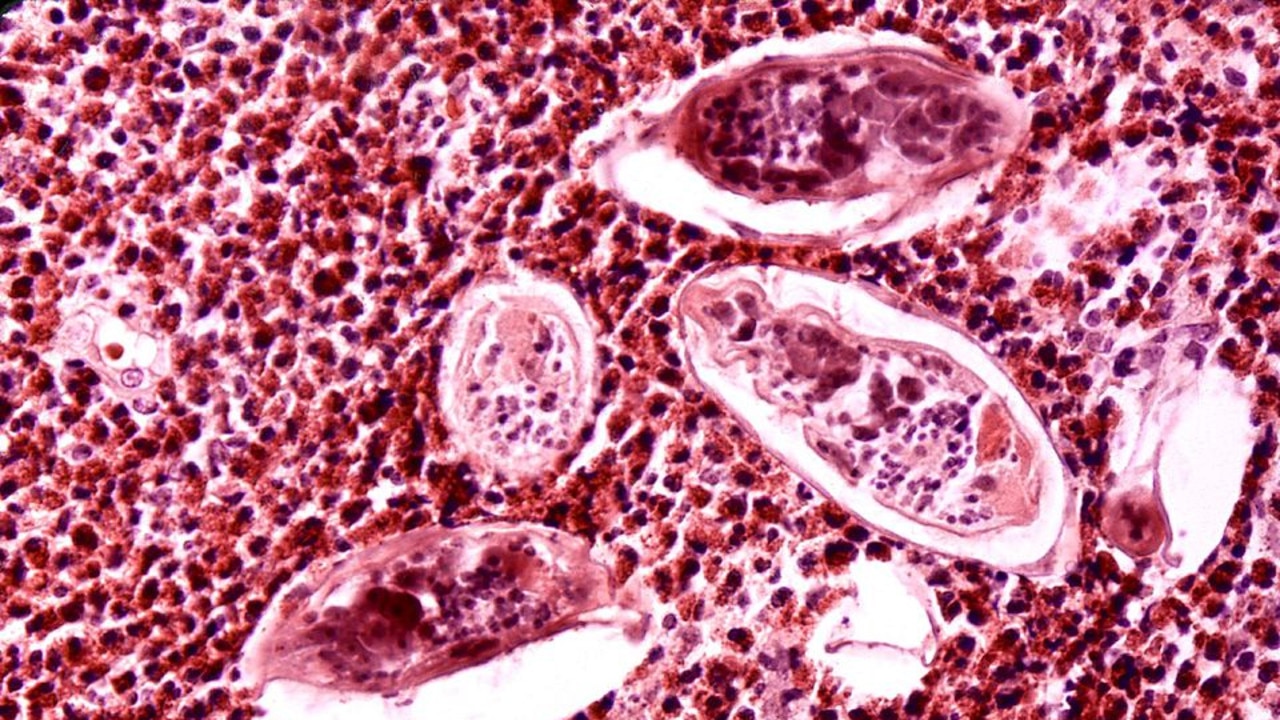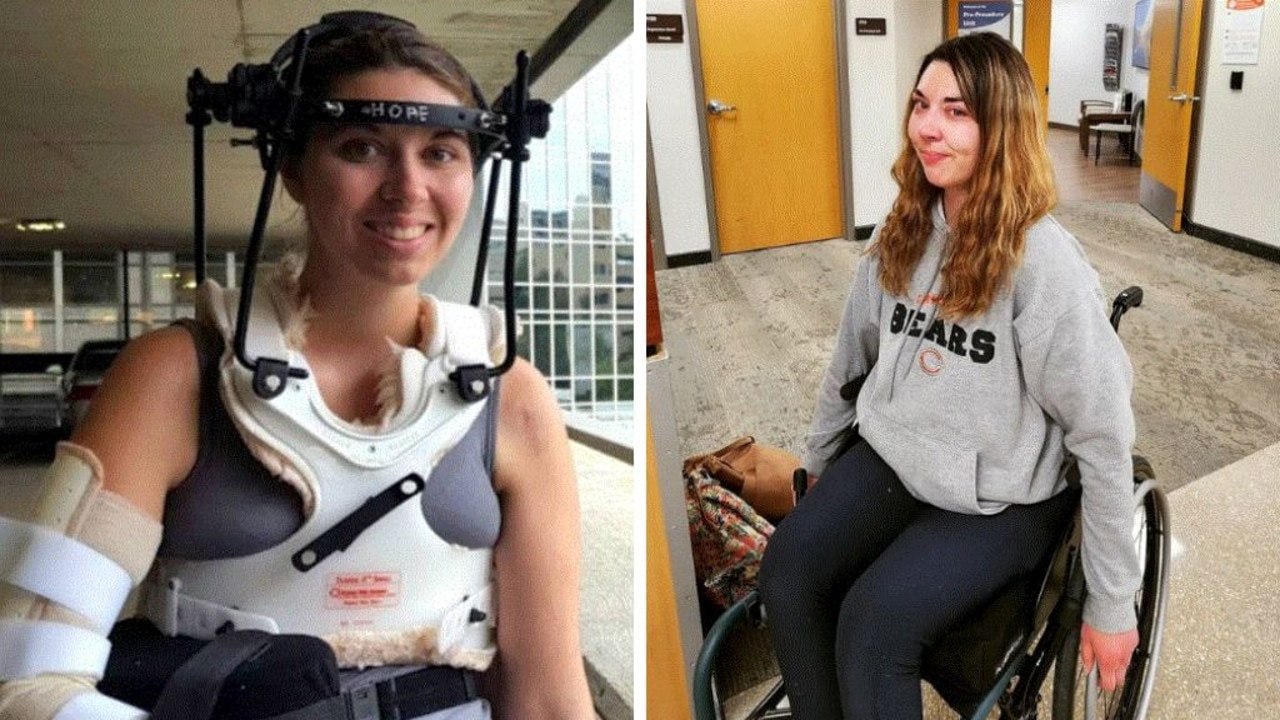Aussie woman’s two-year battle with ‘weird’ long Covid symptoms revealed
After catching Covid on a cruise in 2020, one Aussie woman is still battling “weird” symptoms and is no longer able to work.
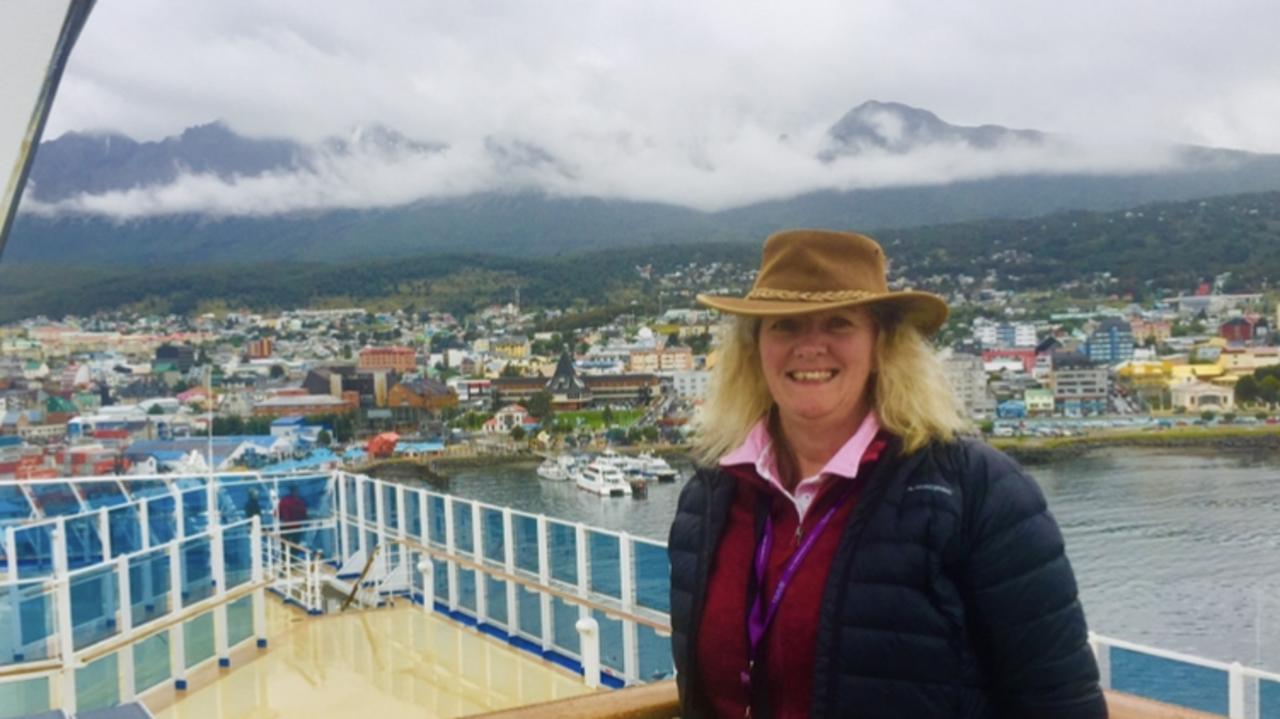
As Covid spread throughout the world in early 2020, Karren Hill found herself on board one of the cruises dubbed “petri dishes” of infection, where the new virus was spreading like wildfire.
The 58-year-old New South Wales resident embarked on a “holiday of a lifetime” in February 2020, travelling on the Coral Princess with her husband and some friends, on what should have been an 18-day tour of South America.
But almost a month later, Ms Hill was still on board and like many of the other 1000 passengers on the ship, she had caught coronavirus.
Initially she was grateful that she had experienced the mildest symptoms compared to others in her group, but ultimately she has been the one to suffer the longest.
Ms Hill is one of the millions around the world who believe they have ‘long Covid’, also known as post-acute Covid-19 syndrome, and the condition has turned her life upside down.
Almost two years later, she doesn’t know if she’ll ever be able to return to work or if she’ll ever fully recover. In fact her symptoms have gradually got worse.
With many more people in Australia now getting Covid, Ms Hill is worried about the consequences for many others in the community. The condition is something other countries are already grappling with but it has not yet been a huge problem in Australia due to the low number of cases.
Last year the United Kingdom announced a £100 million package to expand services for long Covid, after a survey found more than one million people in the country reported to be suffering long-term symptoms.
Across the world, as many as 100 million people have been estimated to suffer from the condition and the numbers could be even higher once diagnosis is improved.
Deakin University researchers have estimated between 2000 to 11,000 Aussies could be sick with long Covid a year after they were first infected.
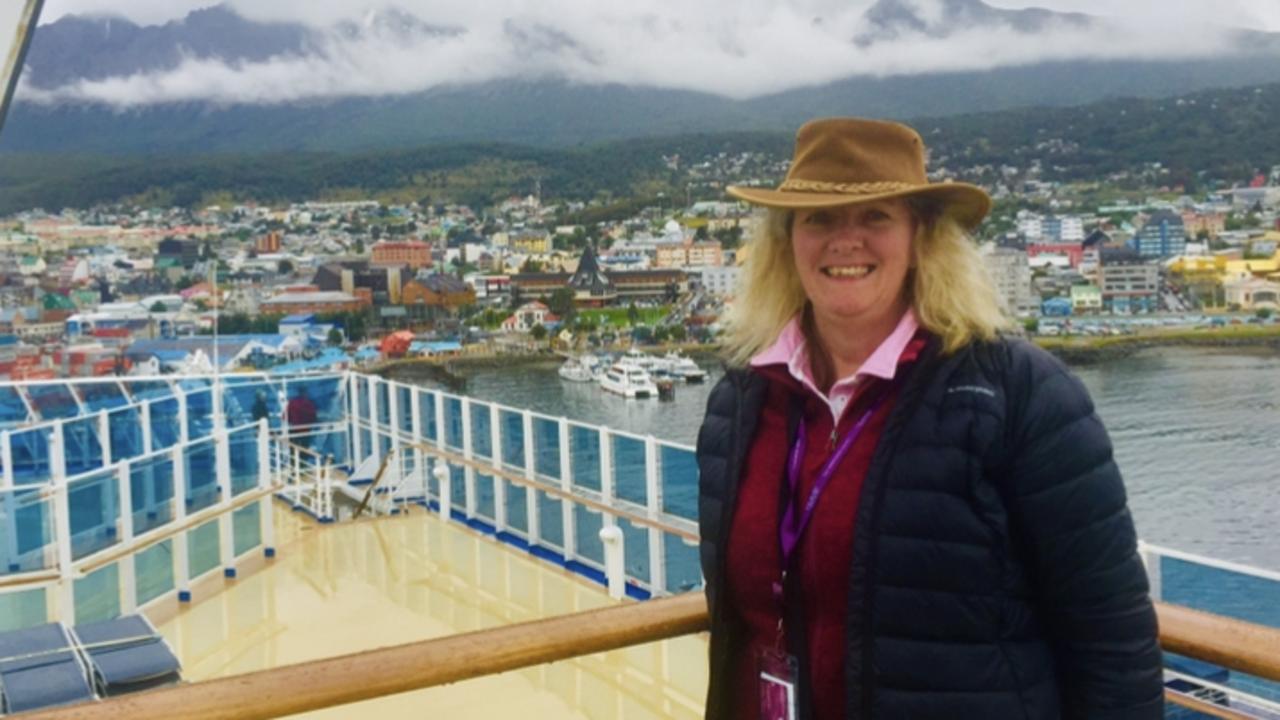
‘I started to lose my hair’: Weird symptoms emerge
While the risk of long Covid appears to be lower among those who get the mildest symptoms, there are still some people like Ms Hill who go on to develop the syndrome.
Ms Hill, who believes she contracted the Alpha variant, thought she had recovered from Covid fairly quickly but said symptoms flared up about six weeks after her initial infection.
“Everyone had similar symptoms to start with: a dull headache and dry cough. My partner had muscle aches and pains,” Ms Hill told news.com.au.
“I just had a dull headache for three days and a dry cough, then I started to feel better.”
Ms Hill thought that would be the end of it but after arriving back in Australia, she started to get sick again.
“The dry cough picked up again, it was getting worse, I also had shortness of breath, random muscle aches and pains, and the headache started again as well.
“I started to lose my hair, I started to get fatigue, I had brain fog.”
Over time some symptoms eased but then other ones would emerge. She later developed a gritty right eye, a condition that made her feel as if there was a piece of sand or constantly something irritating her eye, as well as cold sweats and pain near her thyroid.
At one point she felt like she had continual pins and needles and numbness in both hands and feet for several weeks.
“I had a feeling of something crawling on my left hand for a couple of days,” Ms Hill said.
“I had severe pain in the back of my head, I couldn’t rest it on a normal pillow, I couldn’t touch it, that went on for several weeks.”
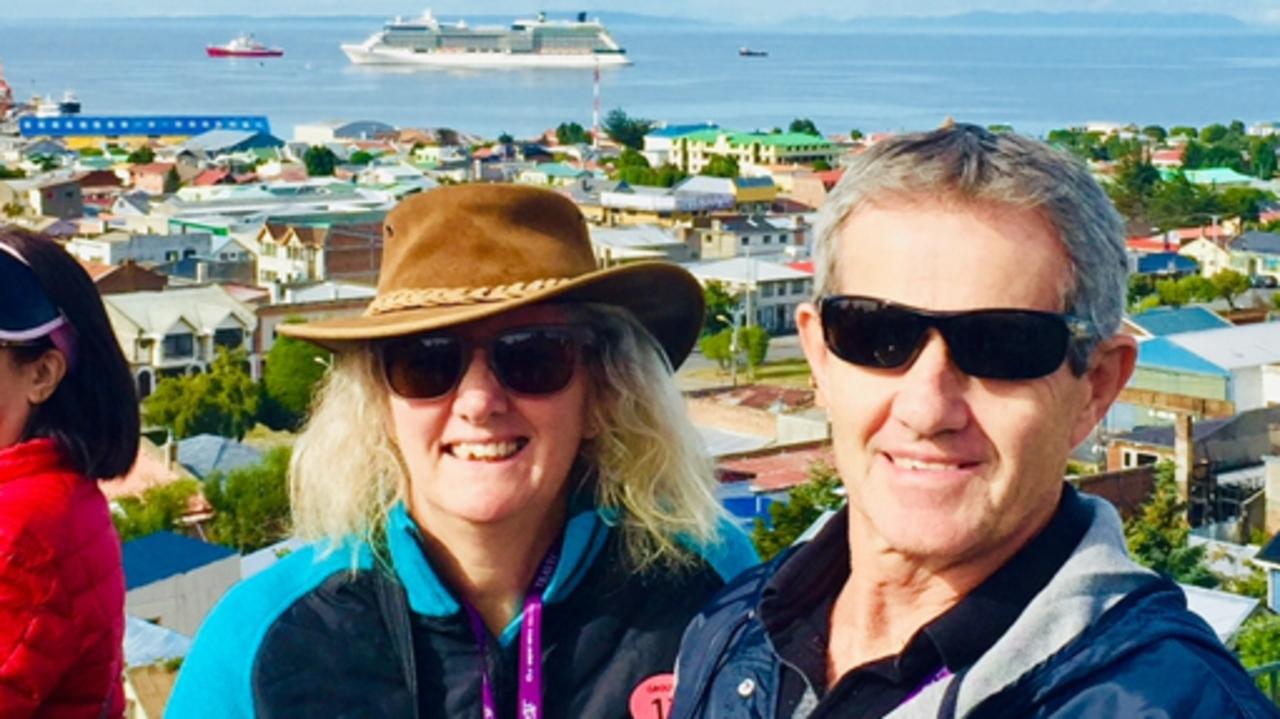
In January last year, Ms Hill developed tinnitus in her right ear but a specialist could find nothing wrong. “It was weird,” she said.
Most seriously, around September she developed supraventricular tachycardia, an abnormally fast heartbeat, and Postural Orthostatic Tachycardia Syndrome (POTS), which often leaves sufferers feeling faint when they stand up.
“My heart can race to over 200 beats a minute just randomly and I feel faint,” she said.
“It jumps 30 points higher just randomly.”
She said the tests for pins and needles had also left her with carpal tunnel in her left hand, and she now has to wear a splint to bed.
‘It’s very scary’
Almost two years after she got infected, Ms Hill is no longer able to work as she often can’t stand up without feeling faint.
“The heart issues have significantly impacted my life,” she said.
“I can’t work and I don’t know whether I’ll get better or not.”
She is taking beta blockers for her heart issue and may also need to have a cardiac ablation, which involves scarring tissue in her heart to block abnormal electrical signals.
“They have to burn part of the heart so it’s very scary,” she said.
There is promising research into persistent microclots in people’s blood that show treatments such as antiplatelet and anticoagulation regimens, could make a difference but Ms Hill said this type of treatment was not available in Australia.
“If you want that treatment you have to travel to another country,” she said.
All the unknowns make Ms Hill worried about the consequences of letting Covid spread throughout the community.
“We don’t know enough yet about Covid yet and I suppose I’m fearful that all those people who get Covid and get it mild like I did, and think they’re fine, might get long Covid,” she said.
“I’m very concerned that other people are going to go down the same path that I have.”

Need for long Covid clinics in Australia
Given the high number of cases overseas, Ms Hill believes Australia needs to establish long Covid clinics, which have been rolled out in places like the UK, to bring together specialists and other services for people who think they have the condition.
While the impact of Omicron on long Covid is still unclear because it does produce a milder disease, there may be people like Ms Hill, who go on to develop long-term symptoms regardless.
Ms Hill notes that NSW does not have any long Covid clinics, and being one of the first Covid patients has meant she has had to navigate the condition without much guidance.
One specialist immunologist she wants to see has a six-month wait.
“If there were Covid clinics for people who have long Covid, you can bring all these people together and get quicker access to them,” she said.
For many Facebook groups like Australia Long Covid Post Covid Community, whose members are all experiencing symptoms more than two months after their initial infection, have become sources of information and support.
“We are all looking for answers, we talk between ourselves about treatment options,” Ms Hill said. “We just don’t feel like we’re getting assistance with long Covid.”
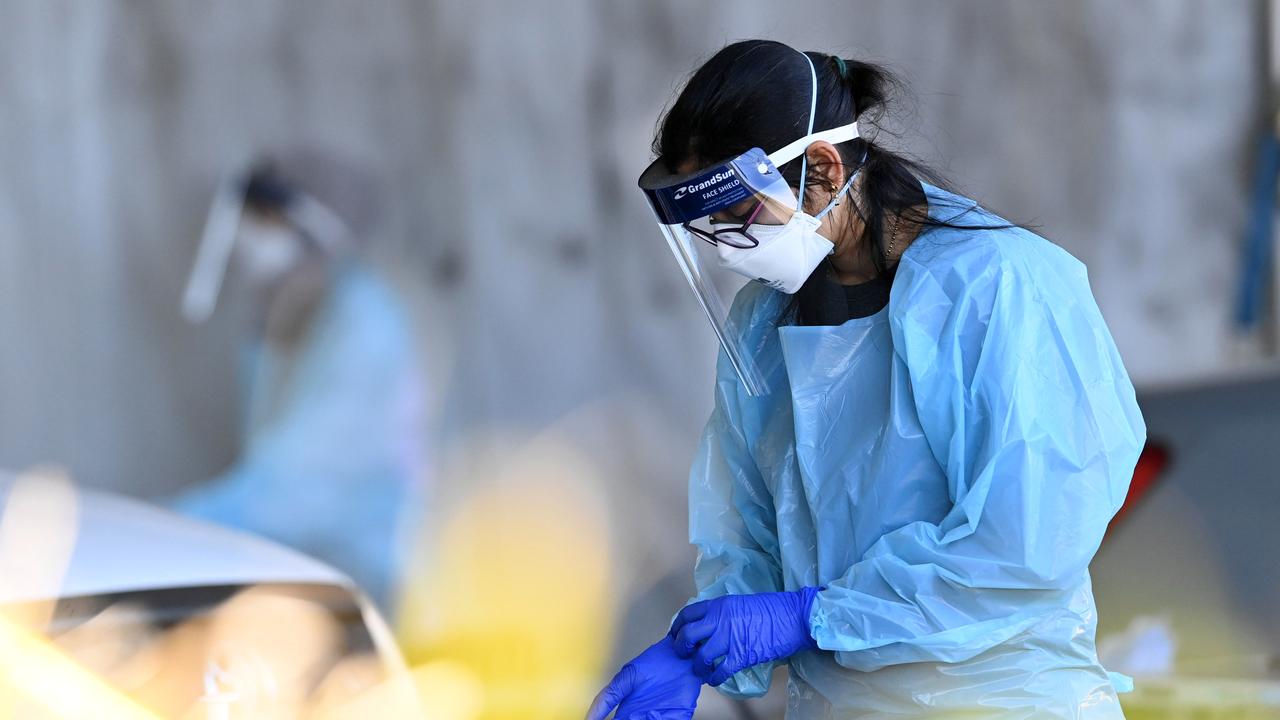
Ms Hill said the Australian contingent of long Covid sufferers appeared to be growing slowly, with members who’ve had the Delta strain, a variant spreading about six months to a year ago, beginning to join.
For Ms Hill, who lives in regional NSW, it has been a long journey of searching for options and trying to find answers. She has tracked down specialist after specialist but most don’t have answers.
“I went to the hospital when I had trouble breathing but they said the only thing they could offer me was oxygen,” she said.
“I had to stay home and deal with the problems myself.”
South Australian based clinical nurse consultant Marie-Claire Seeley said most people with long Covid appeared to be finding information for themselves online.
Ms Seeley has been granted funding along with cardiologist Dr Dennis Lau to research the link between Covid and POTS, which affects blood flow and involves the autonomic nervous system. The system controls involuntary bodily functions like blood pressure, temperature control, digestion, bladder function and even sexual function.
Some experts believe Covid-19 could be a trigger for POTS, with many long Covid sufferers experiencing similar symptoms to POTS such as brain fog, tachycardia (increased heart rate) and severe chronic fatigue.
However, the lack of awareness about the syndrome, even among medical professionals, has made it difficult to recruit volunteers for the study. Another issue has been the low Covid case numbers in South Australia.
“We only want 100 people but there is no central place to recruit,” Ms Seeley told news.com.au.
She has urged people with long term symptoms to email POTS-LCS@sahmri.com to volunteer for the study.
“The virus is a trigger (for long Covid) but it may not necessarily be the virus that continues to cause symptoms,” she said.
“It may be the individuals’ own immune system causing the symptoms."
Focus on vax side effects overshadows Covid risks
The World Health Organisation recognised ‘post-COVID-19’ as a clinical condition in October and Australia’s Royal Australian College of General Practitioners (RACGP) has updated its clinical guidelines on caring for adult patients with post-COVID-19 conditions.
RACGP President Dr Karen Price said post-Covid-19 conditions had unfortunately flown “under the radar” and the focus on the potential side effects of vaccines last year had overshadowed the risks of long Covid.
“There was so much media attention paid to the very rare risks of thrombosis with thrombocytopenia syndrome, or TTS, as well as myocarditis and pericarditis following Covid-19 vaccination,” she said.
“However, many people are not aware that long Covid can severely disrupt your quality of life, your job or study, your relationships and your long-term health and wellbeing.
“Some people with long Covid are struggling to walk up a flight of stairs months after having the virus.”
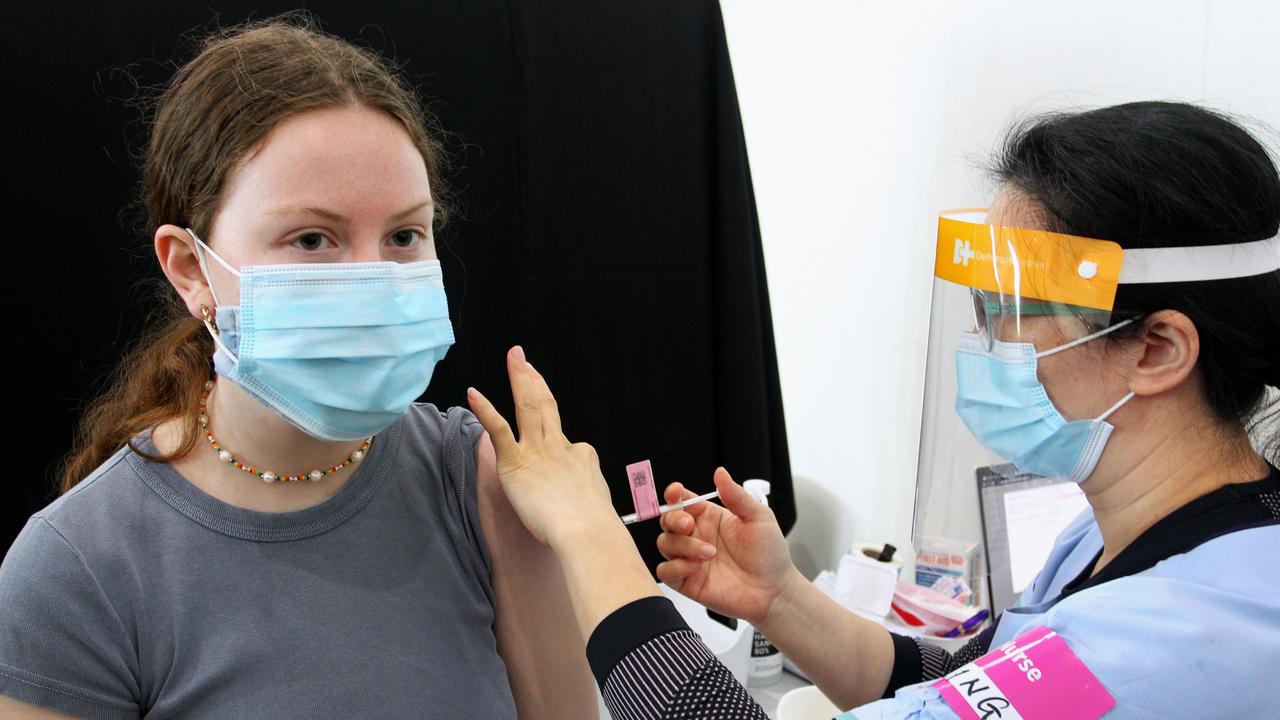
According to the RACGP guidelines, between 10 per cent and 35 per cent of those who get a mild Covid infection go on to develop longer term symptoms. This jumps up to an estimated 85 per cent for those who are more seriously ill and admitted to hospital.
The likelihood of getting long Covid also appears to increase significantly with age and comorbidities.
However, some research published in The Lancet has shown the risk of long Covid is approximately halved in vaccinated people who contract the virus after their second dose.
Deakin University epidemiologist Professor Catherine Bennett said the risk of long Covid was another reason why people were being urged to get vaccinated.
“A virus is much more unpredictable (than a vaccine) and we are still learning about the virus risk,” she told news.com.au.
“There is a risk it could lead to complications we don’t know about yet.”





